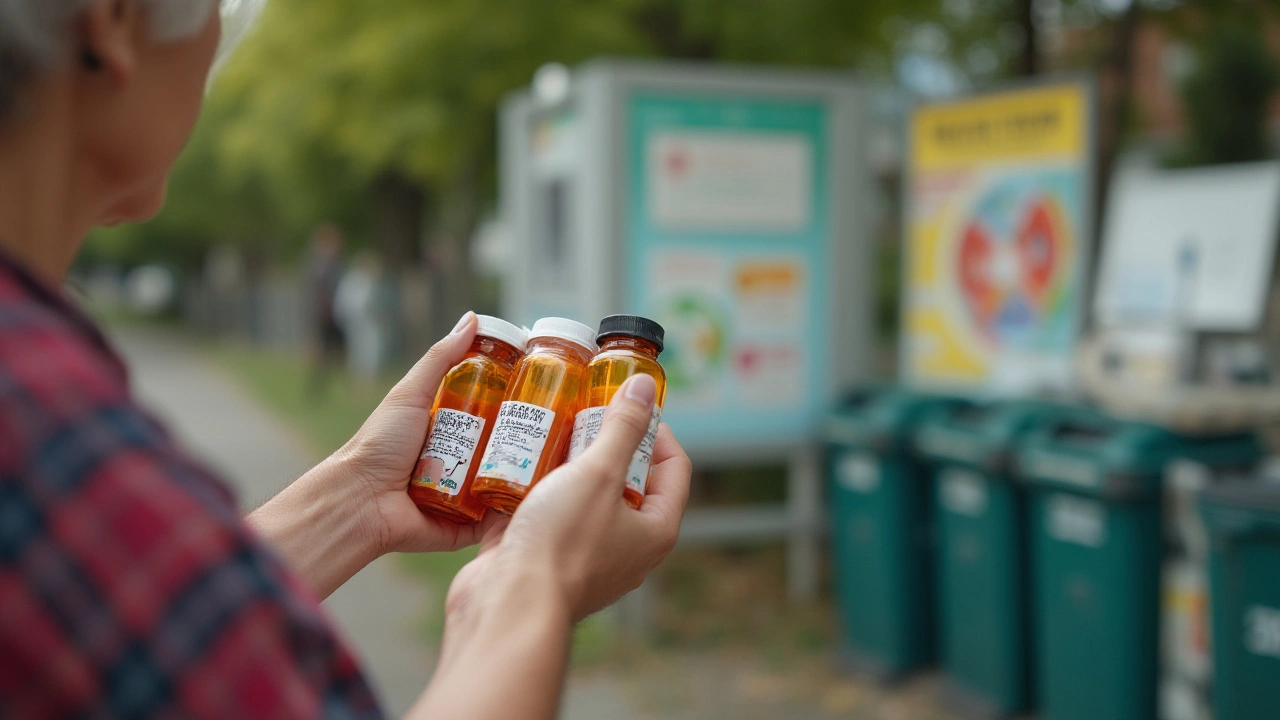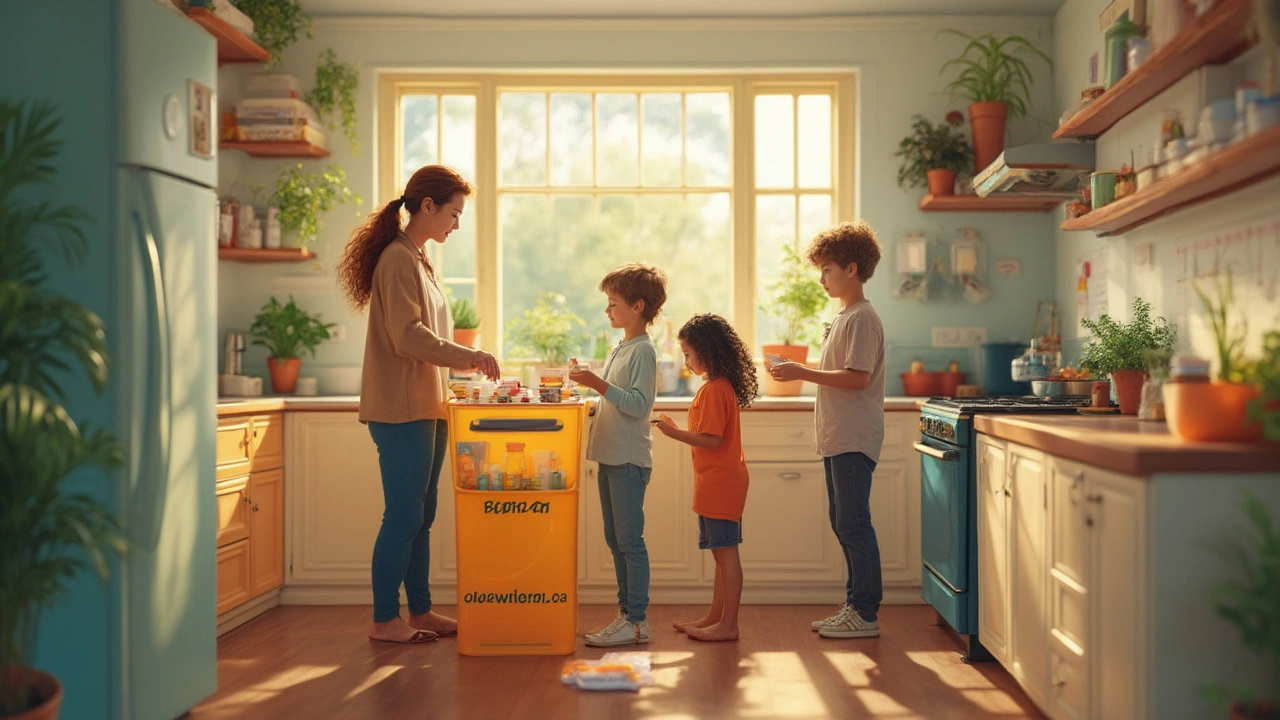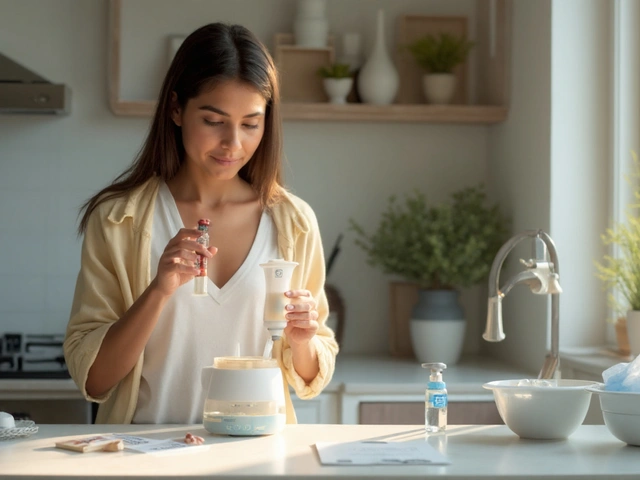Ever wonder what happens when you toss expired pills down the drain or toss them in the trash? Those old bottles in your bathroom cabinet carry a hidden cost—and not just the kind that pinches your wallet. Unused and expired medicine can quietly pollute rivers, soil, and even the water you drink. It’s wild, but more than 7,000 tons of unused prescription drugs pile up in U.S. homes every year, according to an EPA survey. Popping open that lid and tipping expired meds into the sink feels so minor, but researchers have detected dozens of pharmaceutical chemicals in streams and tap water across the world—proof that it’s a big deal. If you’ve ever flushed, trashed, or ignored your aging meds, you’re not alone, but it might be time to rethink that cabinet cleanup.
Expired Meds: The Environmental Fallout Most People Miss
Expired medication is more than a clutter problem—it’s stealth pollution. Flushing drugs or tossing them in the household trash sends their chemical ingredients on a journey you probably never considered. Once those substances leave your home, they don’t just vanish. Trash-bound meds end up in landfills where rainwater can leach their active compounds into the soil, and over time, they may seep into groundwater. When drugs go down the drain, they hit the municipal wastewater system. Here’s the kicker: Most treatment plants aren’t designed to remove pharmaceutical residues. That means trace amounts of painkillers, hormones, and antidepressants breeze through treatment and flow straight into nearby rivers and lakes.
A 2022 study led by the University of York sent shockwaves through the scientific community when it reported the global presence of pharmaceutical pollution in aquatic systems—acetaminophen, carbamazepine, and antibiotics showed up practically everywhere researchers sampled, from the Thames in London to streams in rural Kenya. That’s not just bad news for fish populations or frogs: antibiotics and hormone disruptors in waterways can fuel antibiotic-resistant bacteria and mess with aquatic wildlife. In humans, drinking contaminated water might not give you immediate symptoms, but long-term risks are harder to track and far from reassuring.
And get this: leftover medications aren’t rare. Surveys from the National Community Pharmacists Association say up to 40% of Americans hang on to expired or unused medication, either out of habit, uncertainty, or lack of disposal options. That’s a lot of potential pollution lurking in your medicine cabinet. Even common drugs—ibuprofen, birth control pills, cholesterol meds—can stack up some serious environmental consequences if handled the wrong way.
Why Responsible Disposal Matters
If you’re thinking, “What difference can my tiny pill bottle make?” you’re not alone—but your choices do add up. The U.S. Geological Survey, after analyzing water samples from 139 streams across the country, found detectable levels of pharmaceuticals in 80% of the samples. Pain medications, anti-epileptics, and even veterinary antibiotics topped the list. Scientists have found male fish developing female characteristics downstream from wastewater plants—an effect tied to estrogen from thrown-away birth control. The fact is, when drugs enter natural systems, they stick around: antibiotics promote resistant bacteria in water, antidepressants can mess with fish behavior, and anti-inflammatories like diclofenac are linked to vulture population crashes abroad.
So, you’re not just tossing trash—you might be tipping the balance of whole ecosystems. But it’s about more than wildlife. Drug residues that make it into groundwater can sometimes cycle into public drinking water. Sure, the concentrations are typically low, but no one’s exactly eager to sip a pharmaceutical cocktail, no matter the dose. Plus, keeping unused medication around comes with health risks—kids, pets, or anyone vulnerable might accidentally ingest something dangerous.
Let’s check this quick table showing where some common pharmaceuticals end up and their effects:
| Drug Type | Found In | Possible Environmental Effect |
|---|---|---|
| Antibiotics | Rivers, ground water | Antibiotic resistance in bacteria |
| Hormonal drugs (birth control) | Lakes, tap water | Hormone disruption in fish and amphibians |
| Painkillers (ibuprofen, acetaminophen) | Streams, soil | Liver/kidney toxicity in wildlife |
| Antidepressants | Freshwater streams | Behavioral changes in fish |
Suddenly that stuffed bathroom cabinet becomes a lot more important, don’t you think?

How to Dispose of Expired and Unused Medicines Safely
So, what’s the safest way to get rid of your expired prescriptions or over-the-counter meds? Dumping them isn’t the answer, but the right path isn’t obvious. Here’s the simplest rule: never flush meds unless your local community tells you it’s safe (very few places actually do this). Instead, take advantage of drug take-back programs. Every year in April and October, the DEA organizes National Prescription Drug Take Back Day, setting up hundreds of drop-off sites at pharmacies, clinics, and even police stations, no questions asked. These programs funnel your old meds to official incinerators, keeping chemicals out of landfills and water.
Not near a take-back site? Many pharmacies now accept unused meds year-round. You’ll usually find a drop-box near the pharmacy counter at big chains. Just scratch off your info, close the bottle tight, and drop it off. Some communities also offer mail-back programs—ask your pharmacy if they’ll supply a postage-paid envelope.
Still stuck with no collection available? Here’s a safe way to discard pills in the household trash as a last resort:
- Remove meds from their original bottles.
- Mix pills (don’t crush) with an undesirable substance, like used coffee grounds or kitty litter.
- Place the mixture in a sealed plastic bag.
- Scratch out personal info from pill bottles and recycle or trash them separately.
- Keep the sealed bag away from kids or pets until trash day.
Never share unused prescription meds—even if you think it’ll help someone; it’s illegal and dangerous. If your medication is a high-risk drug (think opioids or stimulants), drug take-back is absolutely critical—these drugs fuel misuse, addiction, and accidental overdoses.
California, Maine, and several other states have even passed laws making producers responsible for creating safe collection sites and mail-back options. By the way, don’t forget about medical creams, liquids, and even inhalers—they count as pharmaceutical waste too and some require special handling because of pressurized gases or flammable materials.
Tips for Reducing Pharmaceutical Waste in Your Home
You don’t have to become a waste warrior overnight, but some small changes go a long way. Start by only filling prescriptions you know you’ll use. If your doctor offers a 90-day supply, say yes only if you really need it. Ask your pharmacist if a smaller amount is possible for new medications. For over-the-counter meds, skip the big value bottles if you rarely get sick—they’ll likely expire before you need them.
Store your meds in a cool, dry place to make them last, and always check expiration dates before buying more. Keep a quick inventory list with open/expiry dates, so you don’t accidentally stockpile duplicates. If you have elderly relatives or kids in the house, do a seasonal cabinet sweep and clear out anything outdated or unneeded—include them in the process so everyone gets why it matters.
Don’t forget pet medications—unused doses count too! Take-back sites will accept most pet meds alongside human prescriptions, and disposing of them properly keeps everyone (furry or not) safer. Got leftover liquid meds? Ask your pharmacist if they accept returns—they often do, since liquids are harder to dispose of safely.
Finally, never give in to that guilty feeling about “wasting” medicine. Your health and the planet’s safety matter more than hanging onto unused pills. By making disposal a regular habit, you set the right example and help protect the water, soil, and wildlife you depend on daily.
To sum it up—while dispose expired medication might sound dull compared to other environmental issues, it’s a hidden piece of the sustainability puzzle. Clearing out your medicine cabinet isn’t just good housekeeping; it’s a step toward keeping streams clean, wildlife safe, and your family out of harm’s way. Next time you spot that faded pill bottle, think twice before tossing—your small action matters much more than you think.






